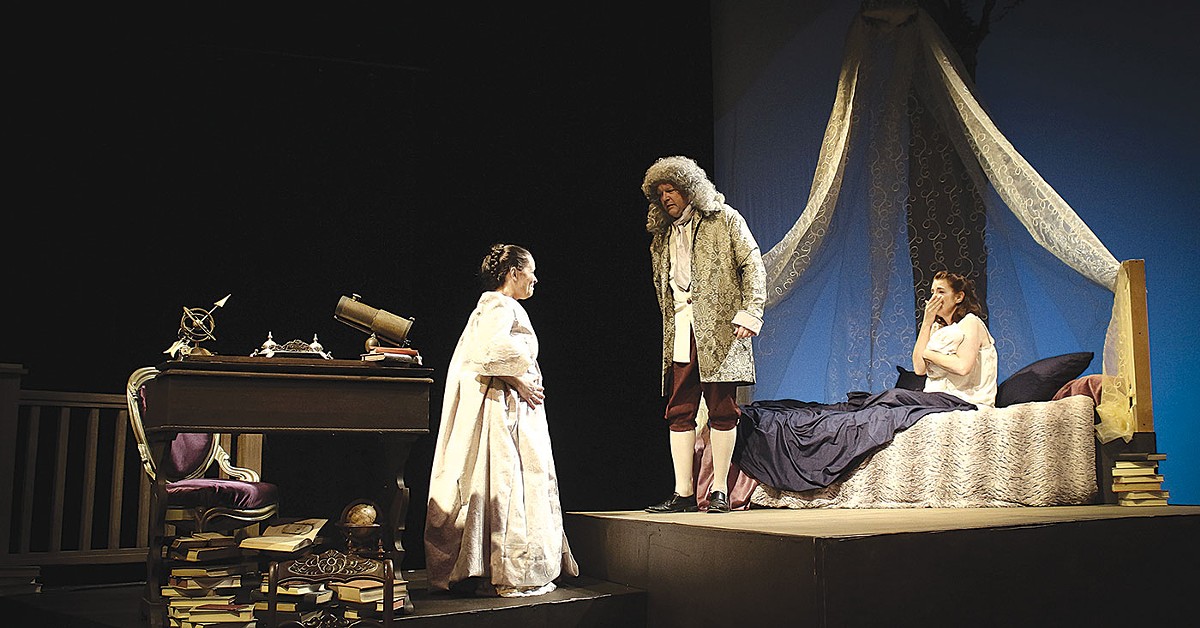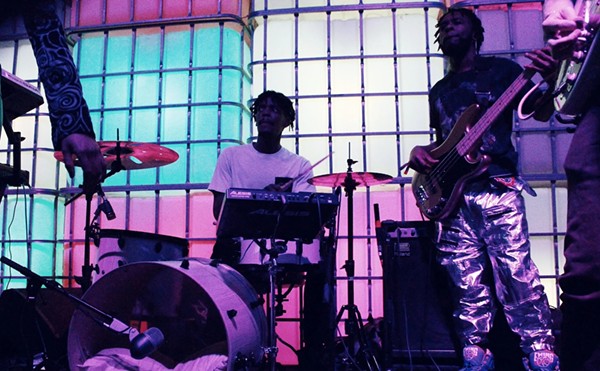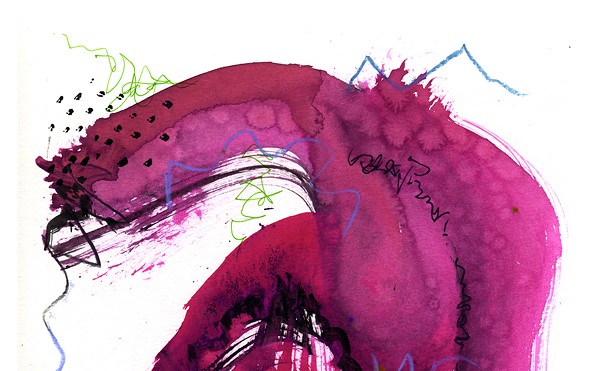As the first half of “Legacy of Light” comes to a close, playwright Karen Zacarias gives the play’s central character, the 18th-century physicist, mathematician and writer Emilie du Chatelet an opportunity to stand alone on the stage and address the audience directly. She recounts with perfect clarity an experiment she invented and described in 1737 in a paper called, “A Dissertation on the Nature and Propagation of Fire.”
That experiment, which challenged scientific ideas of the time, was designed to test whether different colors of the light spectrum carried different amounts of heat. Nearly 75 years later, when a male scientist carried out her experiment, the results confirmed her hypothesis and revealed the existence of the invisible band of light we now call the infrared spectrum.
Reflecting on the properties of that unseen spectrum, du Chatelet says, “The light we cannot see, it heats and burns ... just like ... love.”
And in an instant, du Chatelet (over an effective soundscape designed by Paul T. Carney, with lighting by John Newman) slips from the crystal-clear language of science into the equally-logical passion of poetry. Light and love, she continues, “share the same properties ... and though we cannot see it, smell it, or touch it, we can feel love. It glows.”
It’s a remarkable piece of writing (exquisitely performed by Karole Spangler) that distills the essence of a Looking for Lilith production, under the direction of Kathi E.B. Ellis, that adroitly explores a complicated landscape of intellect and emotion.
It would have been easy for Zacarias to turn the story of du Chatelet into a juicy, satisfying polemic focused on gender bias in the sciences (well, in every field, of course). And the facts of the case would justify a polemic. Although du Chatelet was known and respected by some of her contemporaries, her ability to work as an experimental scientist was restricted; her works were co-opted by others (notably by her lover Voltaire); some of her major works weren’t published until after her death; and only in recent decades has the seminal nature of her thought begun to gain its deserved recognition.
But instead of polemic, this play feels like a celebration and an exhortation — a celebration of the scientific and cultural progress we’ve made since the time of du Chatelet and a call to embrace the idea (often attributed to Voltaire) that “no problem can withstand the assault of sustained thinking.”
Structurally, the play tells two parallel, but interconnecting stories, one set in the world of France, pre-revolution, the other in contemporary New Jersey (with several actors playing roles in both worlds).
In France, du Chatelet and Voltaire (Clint Gill) carry on an affair driven by their intellectual vitality and mutual regard (“and the lovemaking,” notes Voltaire — because, after all “we are French”). Their affair is tolerated with good grace by Emilie’s husband (Michael Hutchins) and by Emilie’s spry and optimistic daughter Pauline (Trina Fischer). But there is enough tension between Voltaire and Emilie’s other lover, the younger Saint-Lambert (Stephen Peterson), to call for a bit of swordplay (fight choreography by Lee Look).
In this world, the costumes (by Lindsay Chamberlin and Typh Hainer Merwarth) are rich and lustrous — and the language is smart, courtly, laced with irreverent ironies, innuendo and plenty of accessible allusions to the scientific, philosophical and political ideas in vogue in Enlightenment France — and if you crave a witty, memorable refresher on Newtonian gravity, just wait until you see Gill’s Voltaire explain it.
In modern New Jersey, the central characters are Dr. Olivia Hasting Brown (Shannon Woolley Allison), an astrophysicist with a tenured appointment in the Department of Terrestrial Magnetism at the Isaac Newton Institute, and her husband Peter (Michael Hutchins), a kind, compassionate teacher.
Finding herself on the cusp of a great discovery, Olivia suddenly wants to have a child but is unable to do so. She and Peter seek out a surrogate mother, Millie (Trina Fischer). Millie and her brother Lewis (Stephen Peterson) have recently lost their mother. And across the centuries, two radically-different stories of brilliant women and childbirth drive the action forward.
Unlike the knowing sophistication of the French characters, the moderns are characterized by earnest intentions (a change of tone that at first seems a bit dull). But eventually the modern world races into its own conflicts (and like du Chatelet, our modern Olivia has ample chances to talk science, including a 2-minute lecture delivered to a group of Girl Scouts, where Shannon Wooley Allison explains the history of astrophysics with delightful élan.
“Legacy of Light” offers plenty of scope for the performers, and they use it to great advantage. Spangler infuses du Chatelet with noble purpose — even when she is forced into a grievous compromise. Clint Gill is a formidable Voltaire whose mobile face (surrounded by a 18th-century wig) conveys the wit, humor, and — eventually — grief that the part requires. And when he describes the fall of a Newtonian apple, he does so in a voice you won’t likely forget. As they shift back and forth across time (and across the fine set designed by Jill Marie Schierbaum and Holly Stone), Hutchins and Peterson shape their characters with finely-physical and vocal inflections. And Trina Fischer whose roles connect both worlds, places both parts with vivacious intensity.
In the end, audience members will come away with different views of this play. The threads of the story create a broad net that gathers up ideas about history, politics, science, philosophy, love, gender, genetics — and the very nature of motherhood as a biological and social construct. In look and feel, the play veers from courtly costumes to contemporary living rooms. As the play closes, it twists from tragedy to farce in just a couple of beats. And one could have a healthy debate about exactly whether the play should end before it does. But there will certainly be plenty to talk about after the play ends.
Legacy of Light
Through Nov. 5
The Henry Clay Theatre
604 S. Third St.
Prices vary | Times vary






